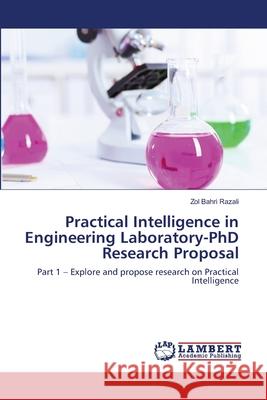Practical Intelligence in Engineering Laboratory-PhD Research Proposal » książka
Practical Intelligence in Engineering Laboratory-PhD Research Proposal
ISBN-13: 9783659403439 / Angielski / Miękka / 2013 / 64 str.
The word "unintentional" means, "which is not intended" unintentional learning occurs when a person learns unconsciously or accidentally, without awareness or without being explicitly instructed or tutored. Unintentional learning refers to a situation in which people may learn about a complex domain without intending to do so. When asked, they may not even be able to articulate or recall what they learned. In this exploring study, unintentional knowledge means the knowledge gaining without intention to learn or through experience rather than direct instruction. As example, somebody knows how to tighten a nut. This knowledge is likely learned without direct instruction but develops through observation, 'trial-and-error' experience, mistake, repeated job or etc. Therefore, it is believed that the knowledge of using or operating basic mechanical (or electronics) parts in engineering laboratory environment, in a proper way is gaining unintentionally. Thus, in this series of books (PART 1), the author's PhD research attempt to explore issues of unintentional learning @ tacit knowledge @ practical intelligence in engineering laboratory classes' environment.
The word "unintentional" means, "which is not intended": unintentional learning occurs when a person learns unconsciously or accidentally, without awareness or without being explicitly instructed or tutored. Unintentional learning refers to a situation in which people may learn about a complex domain without intending to do so. When asked, they may not even be able to articulate or recall what they learned. In this exploring study, unintentional knowledge means the knowledge gaining without intention to learn or through experience rather than direct instruction. As example, somebody knows how to tighten a nut. This knowledge is likely learned without direct instruction but develops through observation, trial-and-error experience, mistake, repeated job or etc. Therefore, it is believed that the knowledge of using or operating basic mechanical (or electronics) parts in engineering laboratory environment, in a proper way is gaining unintentionally. Thus, in this series of books (PART 1), the authors PhD research attempt to explore issues of unintentional learning @ tacit knowledge @ practical intelligence in engineering laboratory classes environment.











